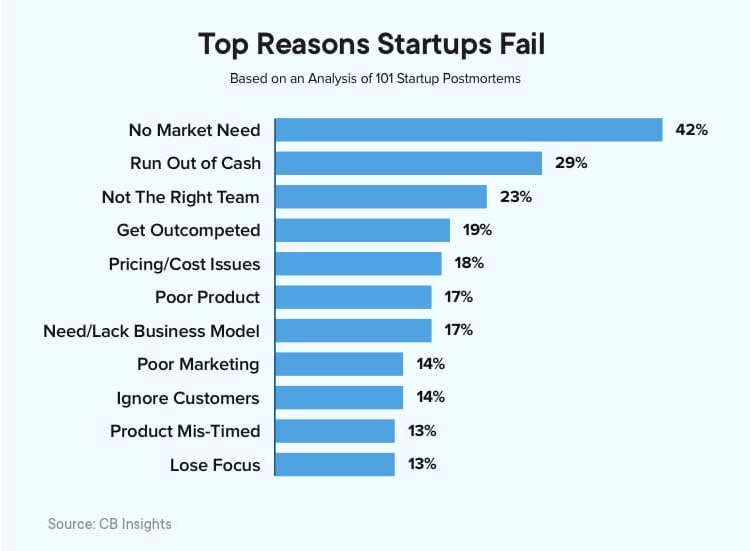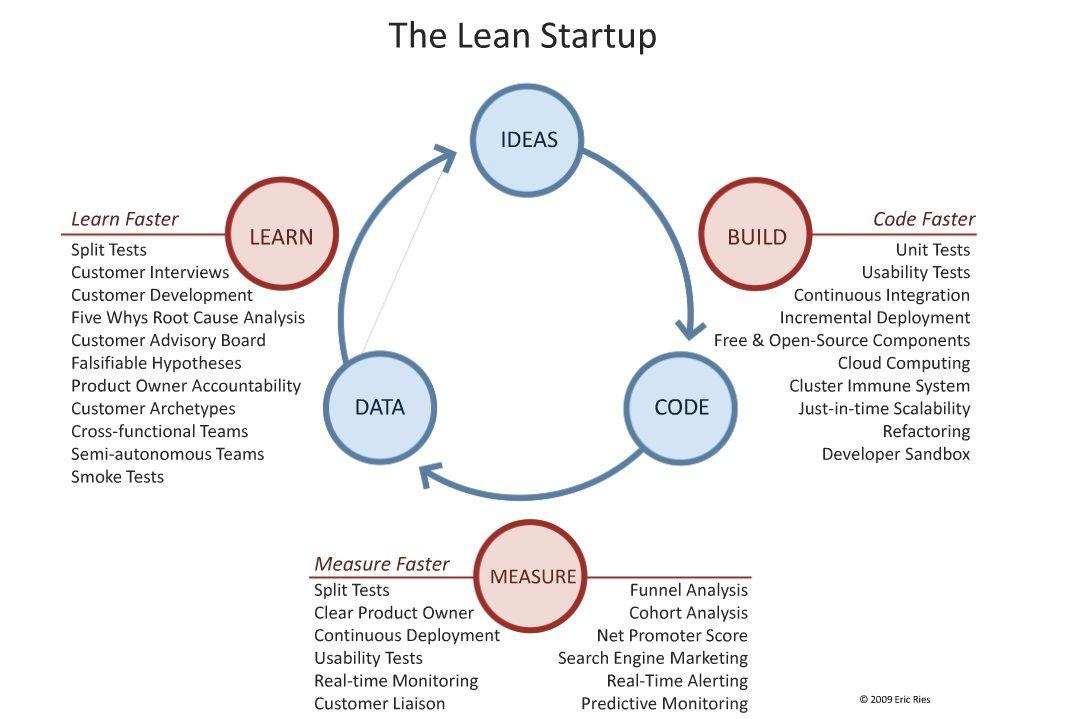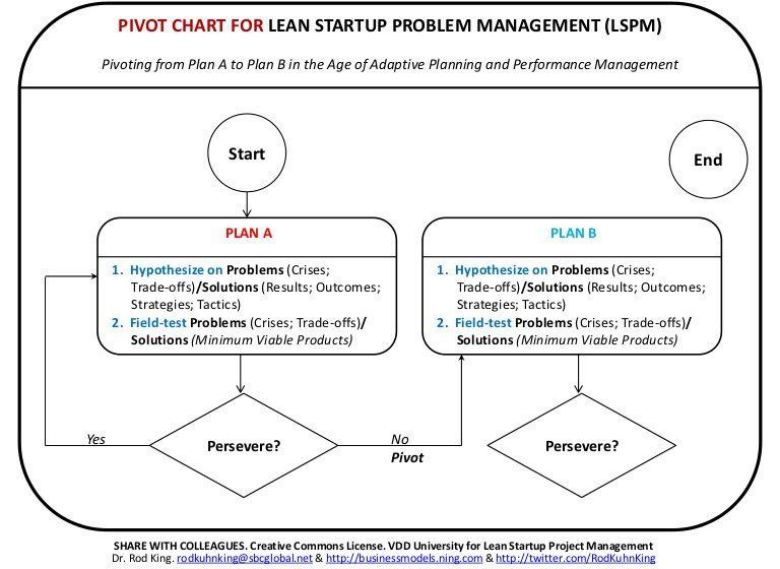Abstract: The article examines the theoretical foundations and practical strategies for startups to adapt to dynamic changes in the market environment. The purpose of the study is to analyze approaches that allow young companies to effectively respond to external challenges, adjust business models and ensure sustainable development. The concepts of Lean Startup, business modeling flexibility and methods of continuous market monitoring and customer feedback are covered. The results of the analysis show that the ability to quickly adapt, based on validated learning and readiness for change (pivots), is a determining factor in the survival and growth of startups. The practical significance of the work lies in providing entrepreneurs and business development managers with structured recommendations and tools to improve the adaptability of their companies in the face of uncertainty and high competition.
Keywords: startup, market adaptation, business development, Lean Startup, business model flexibility, pivot, market monitoring, customer feedback, change management.
The ability to adapt to changes in the external environment is a fundamental condition for the survival and successful development of any commercial organization. However, for startups, this ability becomes especially important. Young companies operate in an environment of heightened uncertainty, limited resources, and the need for rapid identification and scaling of a viable business model. The relevance of the adaptation issue is further intensified by the modern acceleration of technological progress, market globalization, changing consumer preferences, and the emergence of unforeseen crisis phenomena. The inability to timely recognize market signals and adjust strategy often leads to failures for promising ventures. The goal of this article is to analyze theoretical concepts and practical strategies that enable startups to effectively adapt to market changes, thereby ensuring their viability and growth potential.

The Nature of Market Changes and Their Impact on Startups
The market environment is in a state of constant dynamics, driven by various factors. Technological innovations can radically change entire industries, creating both new opportunities and threats for existing players. Competitor actions – the emergence of new strong players, changes in their strategies, price wars – require constant attention and response. Consumer preferences and behavior are influenced by fashion, social trends, demographic shifts, and the availability of information. Legislative and regulatory changes can significantly affect the conditions for doing business. Macroeconomic fluctuations, political instability, or global crises (pandemics, natural disasters) also add an element of unpredictability.
Startups are particularly sensitive to these changes. The limited financial and human resources available to them make it difficult to withstand prolonged periods of uncertainty or compensate for major strategic mistakes. Their business models are often built on hypotheses about the market and consumers, which need validation and may prove incorrect when conditions change. The lack of an established reputation and loyal customer base makes them more vulnerable to competition. Therefore, startups require not only a reactive response to changes that have already occurred, but also proactive monitoring of the environment and built-in mechanisms for quick adaptation.
Theoretical Approaches to Adaptation: Lean Startup and Business Model Flexibility
Modern management theory and practice offer approaches specifically geared toward working in high-uncertainty conditions, typical for startups. One of the most influential of these is the "Lean Startup" methodology, popularized by Eric Ries [1]. Its essence lies in shortening product development cycles, measuring real progress, and obtaining valuable feedback from consumers. The central element is the feedback loop "Build-Measure-Learn."

A startup quickly creates a Minimum Viable Product (MVP), which allows for testing the core hypothesis of the business model with minimal costs. Then, data is gathered from the reactions of real users, based on which conclusions are drawn and a decision is made: either to continue moving in the chosen direction (persevere) or to make a structural change in strategy (pivot) [1]. A pivot is a conscious course change based on validated knowledge, and it can relate to various elements of the business model: target segments, value propositions, distribution channels, technology, etc.
Another tool that facilitates adaptation is the concept of business modeling, in particular, the use of the "Business Model Canvas" proposed by A. Osterwalder and I. Pigneur [2]. This tool allows for visualizing and analyzing all the key components of a business model (customer segments, value propositions, channels, customer relationships, revenue streams, resources, activities, partners, and cost structure). Regularly reviewing and adapting the elements of the canvas in response to market changes helps the startup maintain the relevance and competitiveness of its model [2].

Practical Strategies for Monitoring and Responding
Theoretical approaches must be supported by concrete practical actions. To ensure timely adaptation, startups need to implement the following practices:
- Continuous Market Monitoring: Systematic collection and analysis of information about industry trends, competitor actions, new technologies, and changes in legislation. This may include analyzing publications, industry reports, patent office data, and attending conferences.
- Building Feedback Channels with Customers: Actively collecting opinions, suggestions, and complaints from existing and potential customers through surveys, interviews, web analytics data analysis, and monitoring social media and reviews. Understanding the evolution of customer needs and "pain points" is crucial for adapting the product and value proposition [3].
- Experimentation Culture: Creating an atmosphere within the team where testing new hypotheses (about the product, marketing, pricing) is a normal practice. Using A/B testing, pilot launches, cohort analysis to make data-driven decisions rather than relying on intuition [1]. It is important to view failed experiments as a valuable source of information.
- Scenario Development: Forecasting several likely market scenarios (optimistic, pessimistic, realistic) and developing action plans for each of them. This increases the company's readiness for various turns of events.
- Organizational Flexibility: Building flexible operational processes and team structures that allow for the quick redistribution of resources and changes in priorities in response to external signals. Applying Agile methodologies in development and management.
The Role of the Team and Leadership in the Adaptation Process
A startup's ability to adapt largely depends on its team and leadership. It is necessary to foster a culture in which changes are seen not as a threat but as an opportunity. Employees must be ready to learn, acquire new skills, exhibit flexible thinking, and work in conditions of uncertainty. Cross-functional interaction and open information exchange within the team accelerate the process of decision-making and implementing adaptive actions.
Startup leaders should not only set the strategic direction but also create an atmosphere of psychological safety where employees feel free to propose new ideas or admit mistakes. Clear and timely communication of the reasons behind strategic changes (pivots) helps maintain motivation and team engagement. Leaders also need to be capable of making informed, but swift decisions based on data analysis and the market situation, even when those decisions are complex or unpopular.
Conclusion
Thus, market adaptation is not a one-time action but an ongoing process embedded in the DNA of a successful startup. Effective adaptation involves a combination of strategic foresight, based on continuous monitoring of the external environment, the use of validated learning methodologies (such as Lean Startup [1]), flexibility in revising and adjusting the business model [2], as well as having an organizational culture and team ready for change. Practical tools, such as systematic customer feedback collection [3], a culture of rapid experimentation, and scenario planning, increase the adaptive potential of a young company. Long-term success accompanies those startups that view changes not as obstacles but as a source of information for improving their product and business model, constantly seeking alignment with market needs. These principles and approaches are applicable to startups across various industries striving not only to survive but also to thrive in a dynamically changing world.







